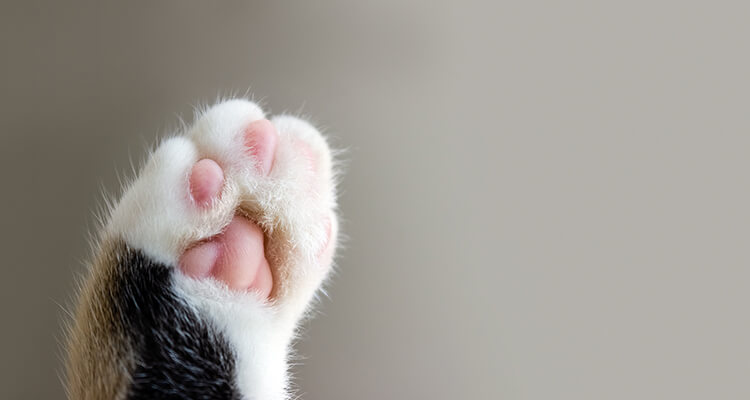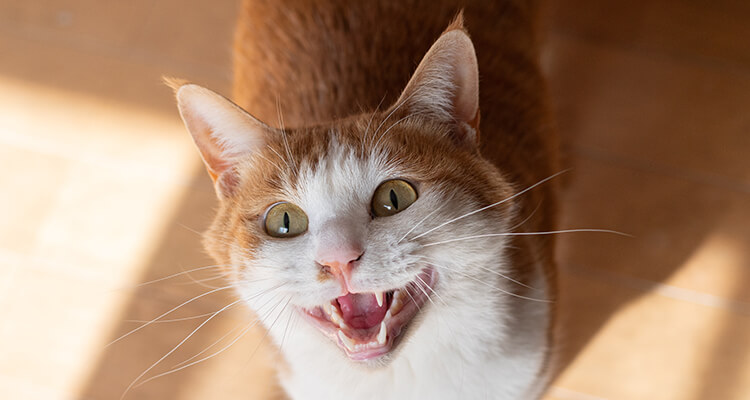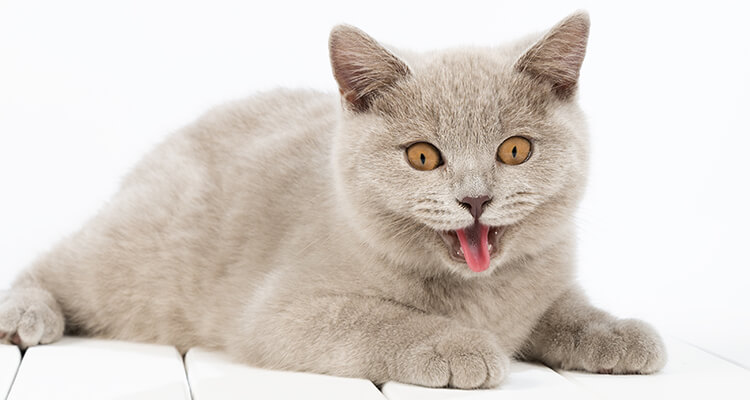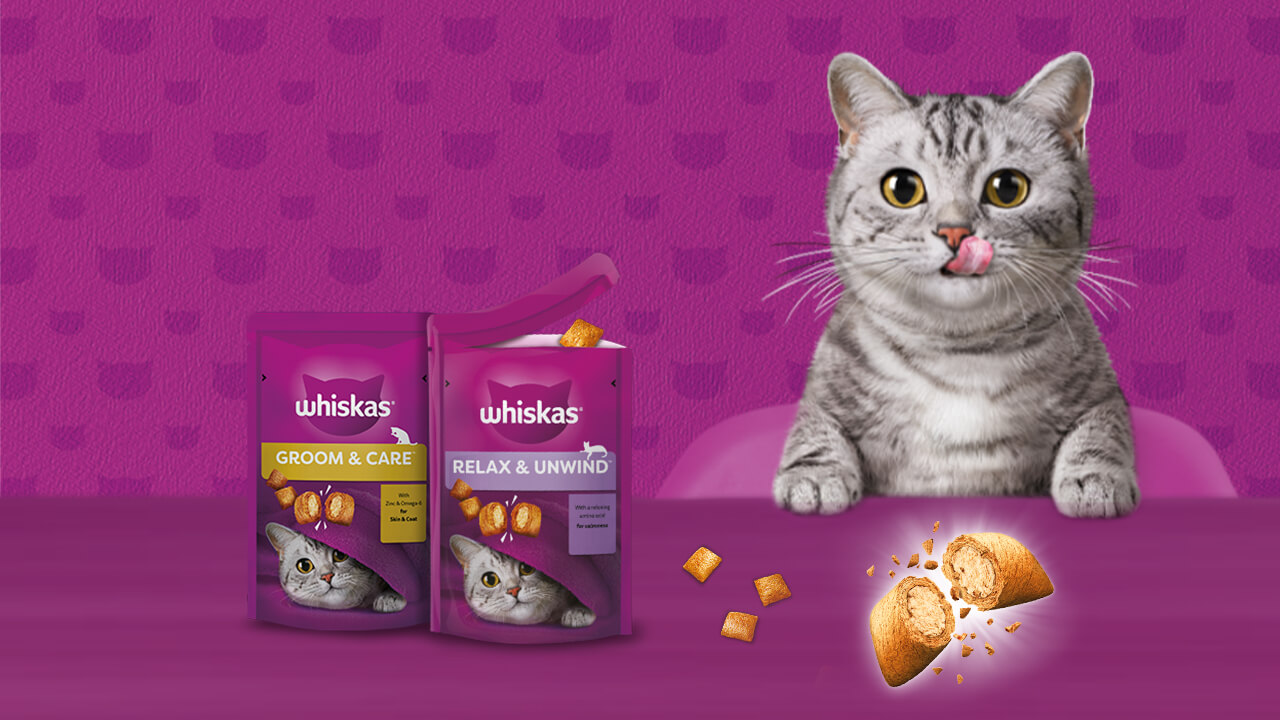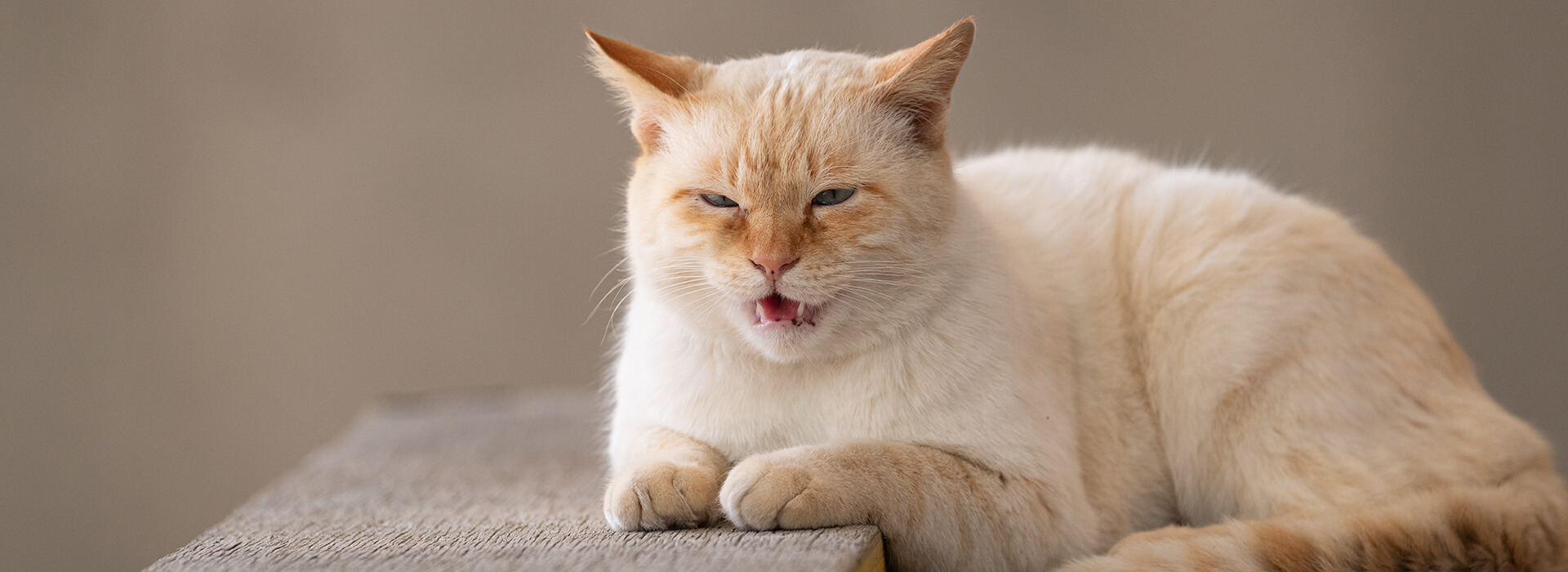
Why is my cat meowing? A cat’s meow is so highly esteemed in popular culture that it was coined to refer to something fabulous by American cartoonist Thomas A. Dorgan in the 1920s. Humans have always been enamoured with cats meowing, but why do cats meow and what does it mean? We will help you uncover all the secrets of a cat’s meow.
Meowing is part of a cat’s unique language and is how they communicate with us. Cats have a variety of ways to communicate, including body language and a range of vocalisations, however, cat meowing is very specific to their interactions with humans which makes it even more special! Oriental breeds of cat are known for their frequent vocalisation and meow much more than other cats.
Kittens utilise their meows to communicate with their mothers and as they grow into adults they generally stop meowing at other cats and utilise their meows during human interactions!
Reasons for cats meowing
Cats meow to communicate with humans for various needs like attention, food, or discomfort, and understanding their body language and meow types helps interpret their messages. Occasional meowing is completely normal but if your cat begins excessively meowing or meowing loudly you should investigate. Why do cats meow? There are several reasons for cats meowing at you excessively and some are more serious than others. Usually, your pet wants your love and attention, however, there may be another underlying issue that your cat is trying to make you aware of.
Pay close attention to your cat's body language, including their physical posture, ear position, and tail movement, these factors can offer additional clues. For example, cats experiencing pain may exhibit more tension in their body or be found crouching and hunching. Cats who push their ears back generally feel threatened, this could also be accompanied by a deep, slow sounding vocalisation, a twitching tail or a tail tucked between the legs. Understanding the context and variations in meow sounds and accompanying physical behaviours can also help you understand their needs and feelings more effectively and identify when they are sick.
Attention seeking
The most common reason for cats meowing loudly is that your cat wants your attention! Your cat may be feeling bored, hungry, understimulated or lonely. Pick up their favourite toy and engage in a fun play session to see if this helps. Your cat may also want your love and affection! You can cuddle with them, chat away, or give them a brush to see if it helps their mood.
Illness
Excessive meowing could also be a sign of an underlying illness your cat is trying to make you aware of. For example, a cat experiencing urinary issues may start yowling (a yowling sound is different to a meow, it is loud, sounds urgent and is accompanied by distressed behavioural cues) while in their litter box. Keep a close eye on your cat’s physical posture, ear position, and tail movement. Yowling or howling vocalisations may also mean your pet has been injured or is experiencing stomach issues or pain. If your pet is cowering, hiding or losing interest in the things they once enjoyed while excessively meowing it may be time to take them to the vet for a check-up.
Hunger
Your cat may be meowing at you because they are hungry! Cats generally meow because they want something and in many cases, they want to be fed! Make sure your cat has a regular feeding schedule and stick to it to avoid food-seeking meows. In the wild cats would choose to eat several small meals a day so it's nice for a cat to have morning and evening feeding occasions and access to a bowl of kibble to graze on throughout the day. It's mentally stimulating for cats if you put kibble in puzzle feeders for them to interact with, or hide a few treats for them to find around the house. However, it's important to know how many treats a cat can have to keep their diet balanced.
Stress
Another common cause of meowing is stress. Is your cat meowing loudly at the window or around certain areas of your home? This could be a sign that something in the environment is stressing your cat out. Moving house, new pets and builders can affect your cat's stress levels. Make sure your cat has a safe space to avoid these potential triggers.
What do different cat meows mean?
Cat owners know there isn’t just one type of meow and it can make understanding cat sounds a little more difficult. We have created this handy table to help you identify the reason for your cat meowing.
Type of Meow | Description | Possible Meaning |
Short Meow: A soft and single meow. | Quick and to the point | A general greeting or 'hello.' If you greet your cat they may return the greeting with this type of meow! |
Long meow: Long and drawn-out noise. | This meow is created to grab your attention, longer and louder than a short meow. | This is generally a “demanding” meow, it could mean your cat is reminding you that it is dinner time and they want to be fed. Alternatively, they could also need your love and attention. |
Yowl/Howling Meow: Urgent and Loud | Long and drawn-out meow, urgent and loud.
| This meow may indicate pain, stress or discomfort. Your cat is worried about something and wants to let you know. Look for other signs of illness or injury. |
What to do when your cat won’t stop meowing?
As mentioned previously, it is important to identify the reasons behind cats meowing excessively as it could indicate illness or injury. It is best to gather as much information as you can about your cat’s excessive meowing before attempting to modify their behaviour.
- Firstly, make sure all your cat’s basic needs are being met before assuming there is an underlying problem. This means making sure they have enough water, food and playtime. Be sure to spend enough quality time with them too as they may be meowing for attention!
- If the excessive meowing continues you can use positive reinforcement with treats to reward your cat during quiet moments, this is particularly helpful after a period of excessive meowing.
- Increasing playtime may tire out your cat and result in less meowing if it is due to boredom or excess energy.
- Your cat may be howling because they are in heat or howling at other cats entering their territory. If your cat is not spayed/neutered this could solve the issue.
- If excessive meowing continues it is time to visit your vet for a check-up.
When to seek professional help?
If you have followed all of the behavioural strategies and your cat is still meowing excessively it is time to take them to the vet for a professional evaluation and to rule out any underlying health concerns. Excessive meowing due to illness or stress is usually accompanied by a lack of interest in activities that your cat once enjoyed, so be vigilant if they are less active than usual. Other physical signs to be aware of include changes in appetite, weight gain, weight loss, personal grooming changes and lethargy.
Age is another important factor to consider when dealing with excessive meowing. Ageing felines may become more vocal due to confusion and hearing loss. Confused cats may meow for reassurance and cats experiencing hearing loss may not be aware of how frequently or loudly they are meowing.
Is my cat crying or just meowing?
Many owners may wonder if their cat is “crying” rather than meowing, while cats don't cry tears for emotional reasons like humans do, they can make sounds that resemble crying, which are usually variations of cat meowing. Revisit the beginning of this article for more tips on how to identify the cause of the meow. A long “crying” meow could be a sign that your cat needs something or is in pain.
It is important to remember that a happy cat may still be a chatty cat and some are just more talkative than others! However, any sudden changes in meow frequency should always be noted as they may be a sign something more serious is wrong and your pet is trying to let you know.
Looking for more tips and tricks on how to understand your feline better? Check out our article on cat communication.


